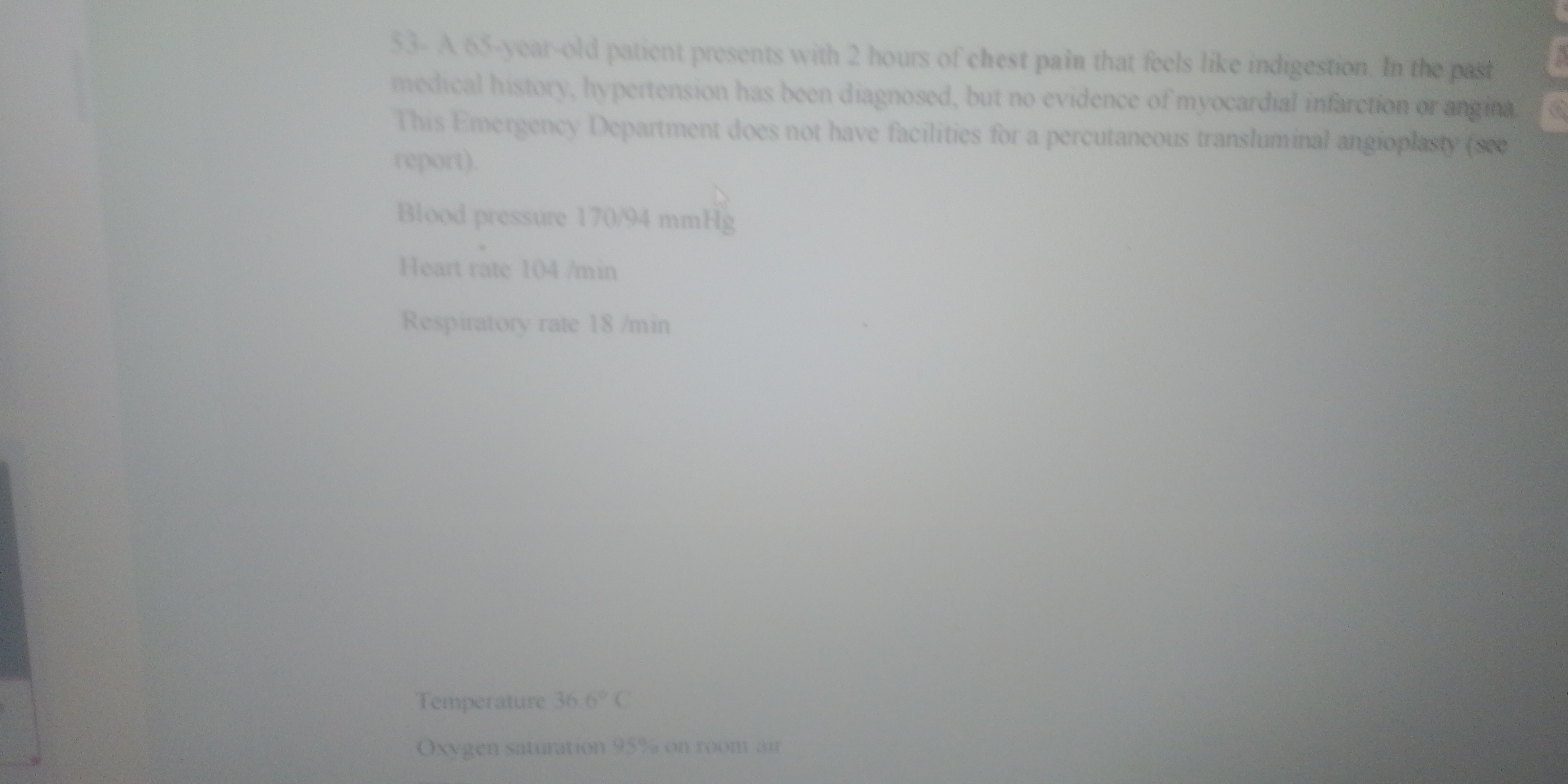A 65-year-old patient presents with 2 hours of chest pain that feels like indigestion. What are the clinical considerations given the patient's vital signs?

Understand the Problem
The question presents a clinical scenario involving a 65-year-old patient with chest pain and various vital signs. It seeks to understand the implications of these details in a medical context, likely focusing on diagnosis or treatment options.
Answer
Consider myocardial infarction; perform ECG, cardiac enzymes, consider thrombolytics or transfer.
The clinical considerations include unstable angina or myocardial infarction despite the absence of previous angina. Immediate assessment with ECG and cardiac enzymes is critical. Given the hypertension and heart rate, cardiovascular evaluation is prioritized. Without angioplasty facilities, consider thrombolytic treatment or transfer to a higher-level care facility.
Answer for screen readers
The clinical considerations include unstable angina or myocardial infarction despite the absence of previous angina. Immediate assessment with ECG and cardiac enzymes is critical. Given the hypertension and heart rate, cardiovascular evaluation is prioritized. Without angioplasty facilities, consider thrombolytic treatment or transfer to a higher-level care facility.
More Information
Chest pain that feels like indigestion can often be mistaken for non-cardiac causes, but in older adults with risk factors like hypertension, cardiac causes must be ruled out rapidly.
Tips
A common mistake is underestimating atypical presentations of myocardial infarction. Always monitor vital signs closely and consider transfer if facilities are inadequate.
Sources
- Acute Chest Pain in Adults: Outpatient Evaluation - AAFP - aafp.org
- Heartburn or heart attack: When to worry - Mayo Clinic - mayoclinic.org
AI-generated content may contain errors. Please verify critical information